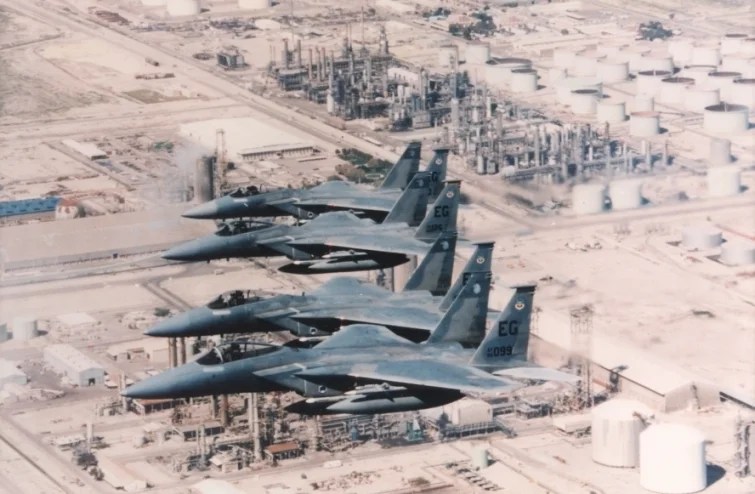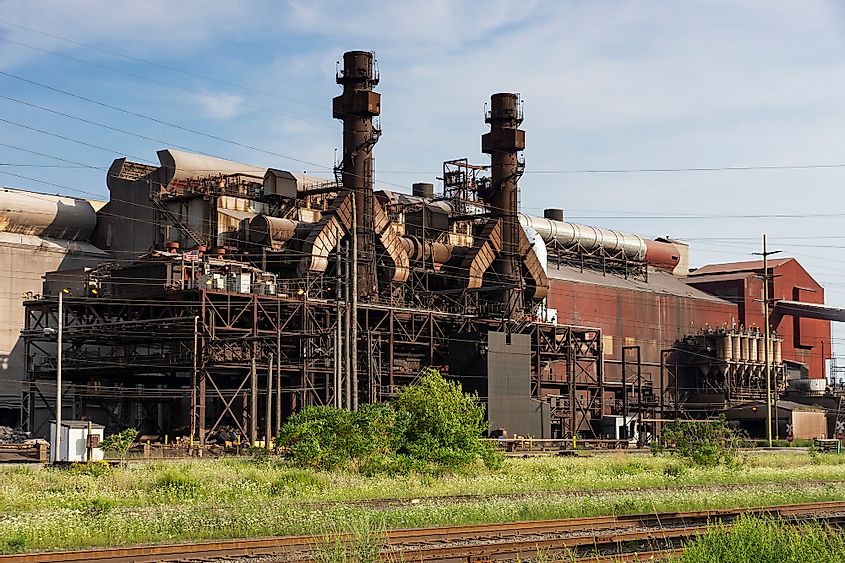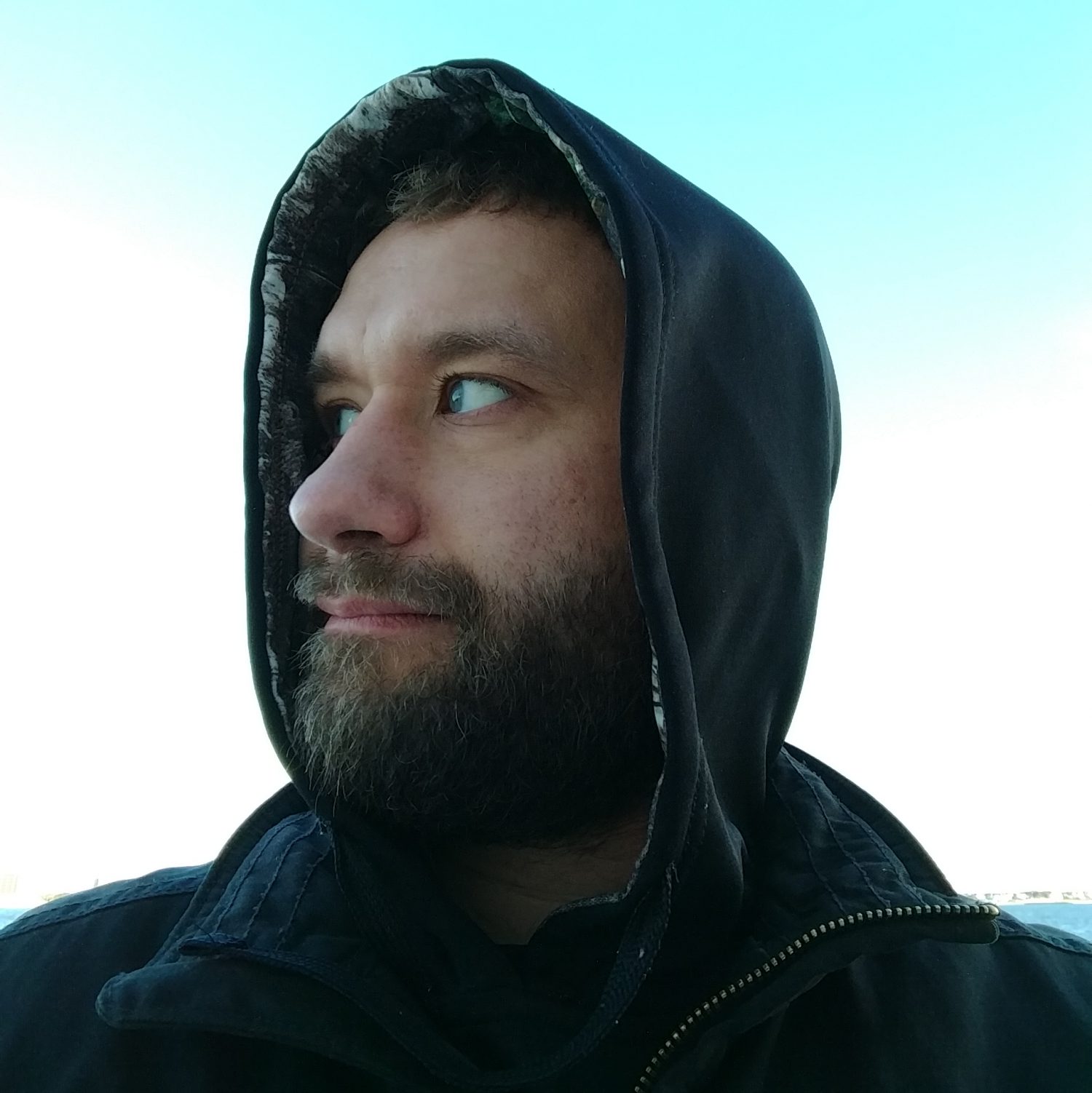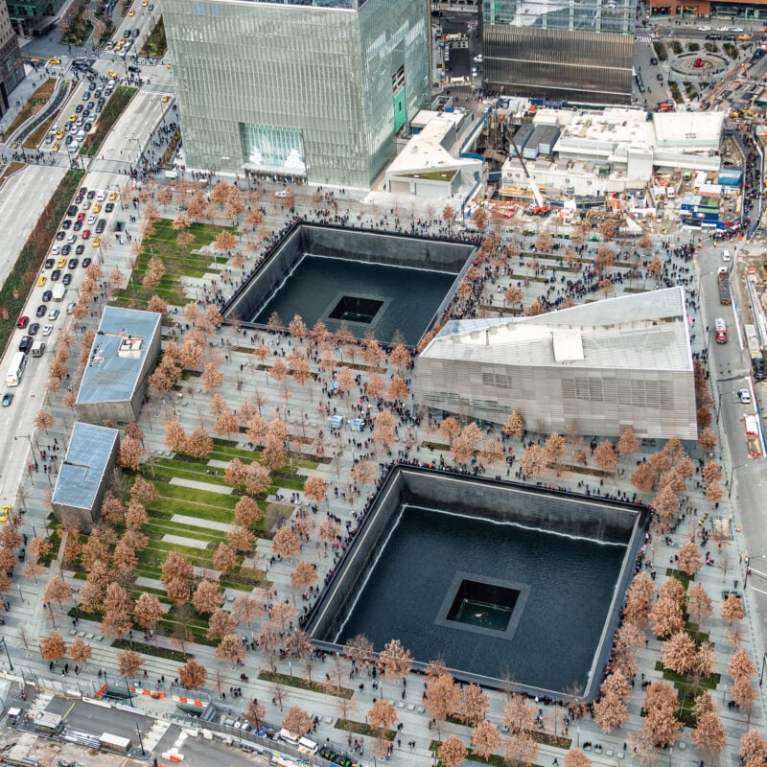Visiting the site of the Twin Towers again has revealed how much my perspective of the has changed over the past few decades since the attacks. The World Trade Centers, built in the 1970s, had once dominated the Financial District of Manhattan and represented both the pinnacle of engineering and the economic might of the American empire.
Like the Pentagon struck the same day, they were symbols of American dominance. Pillars of a system that, prior to that sunny September day, had seemed invulnerable. The United States had won the Cold War, demonstrated unrivaled military might in the Gulf War (all but erasing the bitter aftertaste of Vietnam) and the 1990s felt almost as if it was the ‘end of history‘ with the final victory of liberal democracy over the world.

The NYC skyline is impressive even today, yet that September day the delusion of being untouchable had been wiped away and the trust of the system has continued to degrade as more are seeing the truth:
1) Our government can’t keep us safe. Many forget now that 9/11 was not the first attack on the World Center twins. In 1993 a truck bomb had been detonated in the parking garage of the South Tower and could’ve taken down the towers had it been better placed. But despite this, despite the billions we spent on intelligence agencies, the US had missed multiple opportunities to take down Osama Bin Laden. All of our military strength was useless against a small group of dedicated men using box cutters and airliners.
2) They made us bleed. While many around the world were horrified at the images, there were others who danced with glee as shock and awe covered Manhattan in dust. It was a propaganda coup for those who opposed US hegemony as much as anything else, it proved that there could be repercussions for our policing and globalist policies. Sure we would go on to kill Bin Laden. But he more than accomplished his goal. Not only did he bring down the towers, and strike the Pentagon, but he also goaded us into spending trillions on a fruitless war on terror.
But, beyond this, in the past twenty years, I have gone from being an apologist for the second invasion of Iraq to now being very deeply disillusioned. And I’m not alone. The world is no longer what it was in the 1990s where the US leads the way to a new age. Rather many are starting to see through the shiny facade and realize that the system in its current form serves a few at the top. But our banks, our government, and corporations routinely conspire to rob us. There is no free market or true representatives of the people, it is a rigged game and the ‘house’ always wins.
Walking past Wall Street I remarked “This is the heart of the beast” and it is. The money flowing through this place is the lifeblood of a nation, the very center of the current world order, and what enables the endless wars of our political regime. The towers were not random targets. Nor was the attack because they hate freedom and democracy, but rather it was a response to the imposition of US policies on their countries and the never-ending presence of our military in their own backyard to serve US economic interests that they resented.
As wrong as it was to murder 2,977 people, this ‘collateral damage’ has long been a part of war, many Americans have no moral qualms about nuking the cities of Hiroshima or Nagasaki, and the US has killed hundreds of thousands of non-combatants. So why is it such an outrage if others in the world employ a similar total war strategy against us?
If America once represented an ideal, that is fading due to relentless attacks by the left and the growing disillusionment of everyone else. There has been a transition, over the last few decades in particular, from the time when athletes would wrap themselves in the flag to this time it has become controversial and even contemptible. Even conservatives no longer trust national institutions and have embraced a myriad of conspiracy theories—including many about the 9/11 attacks.
Personally, I do not believe that the official narrative is entirely a lie. I believe a group of men, funded by Al Qaeda, hijacked four fuel-laden airliners, two of them were flown into the towers, one struck the Pentagon and a fourth crashed into a field in Pennsylvania. I do not see a need for a controlled demolition to explain why the buildings collapsed. No this is not to say that our government didn’t know more prior, opportunistically exploit or even facilitate the attacks. There’s simply a better explanation of everything that happened that day and since.
The fragility of our world order…
As a young person everything that was had this feeling of permanence. My parents and other adults were fixtures in my life. It all felt robust and unchangeable. But as time went on, grandparents passed away, trends came and went, seasons changed and I began to learn that nothing is forever. Even concrete will degrade in strength and eventually, it will crumble away into dust. Institutions are no different, they tend to have a lifecycle, at the very least require constant maintenance, and all these systems we rely upon to create order in our world are surprisingly fragile.
The New York City skyline has a robustness of appearance. It is built off of the bedrock, the skyscrapers seemingly carved out of a single piece of polished granite. This is by design. The architects and engineers who built these monolithic-looking structures do want them to feel secure and safe. And, for the most part, or under typical conditions, it is true—they are reliable.
However, they’re not indestructible.
The Word Trade Centers, while massive and certainly marvels of engineering, under that shiny metal and glass veneer, were as flimsy as a stack of cards. What made them great also created unique vulnerabilities. Unlike the Empire State Building, a grid of I-beams and tapers in towards the top, the enormous twins had a center trunk section with long clear spanning trusses that were supported by the outer ‘skin’ of the buildings. This had given them a large and unobstructed office space. This was practical, but in retrospect became a fatal flaw in their design.

The impact of the airliners removed some of the structure. No, this was not enough to cause a collapse, yet this was enough to add strain and reduce the load-carrying capacity of the buildings. The towers, despite getting hit by aircraft larger than the 124-ton Boeing 707, had exceeded expectations and absorbed the impact. It was only after fires raged, out of control, that the heat had reduced the tensile strength of the steel enough that the floor trusses would deflect and could no longer hold the upper floors—at which point the top of the buildings began to fall into the lower—smashing one floor at a time until nothing but a cloud of dust and pile of rubble remained.
The popular meme “Jet fuel can’t melt steel” is clearly ignorant of the reality that you do not need to turn steel into liquid before it will fail. An inferno of jet fuel mixed with office materials is more than enough to weaken a structure to the breaking point. There is no need to explain this as controlled demolition or building 7, where there was damage to the structure, fires burning on ten floors, and the sprinkler systems disabled due to water main breaks.
Still, many Americans have a huge problem accepting that these symbols of our strength could be taken down by a handful of zealots with box cutters. It makes us feel insecure. We want it to be more. And thus it must be some kind of massive concerted effort, with an enormous cover-up, right?
This is, ultimately, a form of denial.
Most Americans know that manufacturing jobs have been continually outsourced. But many do not fully comprehend the economic reasons why the US has gone from the nation that won WW2 with industrial power to the current situation nor how much they have benefitted. It is the status of the US Dollar as the world reserve currency and the Petrodollar arrangement that give US consumers the edge. Basically, in order to buy their oil from Saudi Arabia, other countries around the world needed to get their hands on our money and for this reason would sell us goods they produced at a bargain price.

The “new world order” George HW Bush hypothesized was never to be. Bin Laden had answered and won on multiple fronts. He caused us to question our own American identity, whether our leaders actually represent our good, and if their endless wars truly benefit us—which they don’t. More importantly, he penetrated the illusion of permanence and strength that kept us blindly pulling the weight of empire for our masters. Even 9/11 truthers, in their rejection of the official narrative, are part of this new anxiety undermining the tower of world dominance built in the post-WW2 era.
After two more wars where only the defense contractors and their political proxies came out as victors, after bailouts for the “too big too fail” and current institutional protection of the hedge fund billionaires against retail ‘Ape’ insurgents, more are waking up. How the elites and political establishment gang up on populists, like Donald Trump or Bernie Sanders—brazenly rigging the DNC primary in 2015 and the Big Tech election interference this past cycle—has damaged faith in the democratic process. And, lastly, having endured the Covid lockdowns, more question the notion of us being exceptionally free people.
Even if enough Americans remain under the spell and continue to support the collapsing regime, the rest of the world (at least beyond Western Europe and Australia) is not fooled by our propaganda. After decades of BS and bullying, like those WMDs never found, many are rejecting the monopolar order and ready to work on plan B. China, India, Middle-Eastern and African nations do not want to be perpetually subject to US economic threats and warfare. And, after the Ukrainian sanctions, they’re taking steps to protect their own sovereignty against this imperial aggression. BRICS is here and the supremacy of the Petrodollar, which is what has enabled the half-century US reign, is being challenged.
The pillars upon which the US economic might was built are now shaking and yet nobody seems to be focused on shoring up this foundation. The tower sways, but hubris blinds those who could prevent the collapse.
From confidence to doubt…
Bin Laden knew his 9/11 attacks would lead to massive overreach. He understood that the arrogance of our leaders would lead to a flailing angry response. No, the attacks were not enough to bring it all down but they did put the cracks in the base of this order and the future is no longer as certain as it was prior to that moment of horror and disbelief—when a bustling city and the most powerful country in the world was brought to a standstill.


Those feelings of horror and helplessness and disbelief remain, like those abyss-like holes in the ground where the towers once stood. We have all seen the writing on the wall. The party may have continued, on the surface, but something has fundamentally changed underneath it all, the ground has shifted—as has our perception of our own untouchable position in the world.
History is not an end, the new world order is starting to look as frail as those geriatrics who rule us afraid to die and desperately cling to their power.
The juggernaut of the US-led world order, which had briefly appeared to be an impenetrable fortress, is now unraveling and all it took is a little push.





